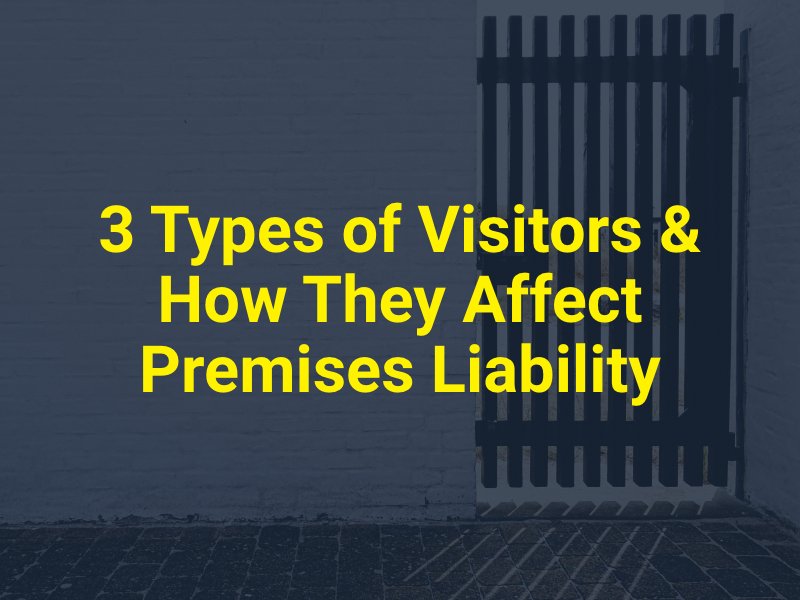In personal injury law, premises liability is an important matter that often comes into play when injuries occur on someone else’s property. In Arizona, property owners and non-owner residents have varying levels of liability under premises liability law, depending on the status of the injured party.

Invitees are foreseeable visitors who are on the property with the owner’s permission and for the owner’s benefit, such as customers in a store. Property owners are legally obligated to invitees, as they owe them the highest standard of care. They must reasonably maintain their property and warn invitees of any dangerous conditions on the property, like a broken railway or a slippery floor.
Property owners can be liable even if they aren’t actually aware of the dangerous issue; if the danger existed long enough that they should have discovered it, they can be liable for resulting injuries.
Licensees are another category of visitors who are on the property with the owner’s express or implied permission, but not for the owner’s financial benefit. Examples of licensees include dinner guests.
Property owners have to adhere to different standards when accommodating licensees compared to invitees. They must warn these individuals of any non-obvious dangers that they are aware of.
A property owner is usually not liable for injuries resulting from clearly marked or visible hazards that the licensee should have seen and assessed before being injured; they simply have to warn invitees of any non-obvious hazards:
“A landowner has no duty to a licensee “other than to refrain from knowingly letting him run upon a hidden peril or wantonly or wil[l]fully causing him harm.”
Trespassers are individuals who are not authorized to be on the property. Under these circumstances, there is no legal responsibility placed upon property owners to protect individuals who visit their premises from potential dangers that might exist on it. However, a property or business owner or manager cannot willfully harm a trespasser.
That being said, there are important exceptions to this rule, like the attractive nuisance doctrine. Arizona law requires property owners to take necessary precautions to prevent children from injuring themselves on enticing but hazardous objects, such as swimming pools, trampolines, or abandoned vehicles:
“A dangerous condition on a landowner’s property that may particularly attract children onto the land and pose a risk to their safety…A possessor of land is subject to liability for physical harm to children trespassing thereon caused by an artificial condition upon the land if:
(a) the place where the condition exists is one upon which the possessor knows or has reason to know that children are likely to trespass, and
(b) the condition is one of which the possessor knows or has reason to know and which he realizes or should realize will involve an unreasonable risk of death or serious bodily harm to such children, and
(c) the children because of their youth do not discover the condition or realize the risk involved in intermeddling with it or in coming within the area made dangerous by it, and
(d) the utility to the possessor of maintaining the condition and the burden of eliminating the danger are slight as compared with the risk to children involved, and
(e) the possessor fails to exercise reasonable care to eliminate the danger or otherwise to protect the children.”
If the attractive nuisance doctrine applies, the child’s family may be entitled to compensation for the injuries suffered, even if the child was trespassing.
Understanding the different types of visitors and their associated rights and responsibilities is an essential aspect of premises liability claims in Arizona. If you need help with a related matter, we’re here for you. Contact Hastings & Hastings to schedule a free consultation.